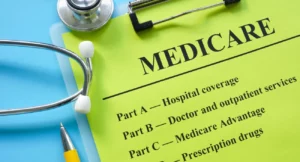Understanding The Part D Penalty

Are you confused about the Part D penalty? You are not alone- it can be confusing. Part D enrollment is optional, but if you do not sign up for Part D you may have a late enrollment penalty if you enroll at a later time.
So what is the Part D penalty exactly? The Part D late enrollment penalty is one percent of the national average Part D premium for each month that you delayed Part D enrollment and were not covered by creditable drug coverage.
You can delay Part D without penalty if you are currently covered by creditable drug coverage. Creditable drug coverage is coverage that has an overall value that is as good as or better than standard coverage under Part D. You may receive creditable coverage from your current employer insurance, retiree insurance, military benefits, or Federal health benefits. If your drug coverage is creditable, you should receive notice from the plan around September each year. If you do not receive this notice, you should contact your benefits manager to get this information in writing. Keep these notices because you will need proof of your creditable coverage if you decide later that you want to enroll in Medicare Part D.
If you drop or lose your creditable prescription drug coverage through no fault of your own, you will have a Special Enrollment Period (SEP) to sign up for Part D for up to 63 days after your coverage ends. If you drop or lose your current or former employer-based prescription drug coverage, regardless of whether it is creditable, you will also have an SEP to sign up for Part D for up to 63 days after coverage ends. In order to avoid a late enrollment penalty, this employer-based coverage must have been creditable.
There may be consequences if you sign up for Part D in addition to your current drug coverage. You should ask your employer or retirement benefits administrator if you can keep their coverage and have Part D at the same time. You could lose your employer, retiree, or other benefits if you sign up for a Part D plan. It is important to keep this in mind if your plan covers a spouse or dependents because if you lose coverage, they will too, and it is unlikely you will be able to get the coverage back.






